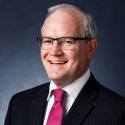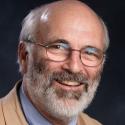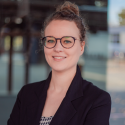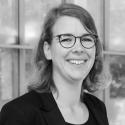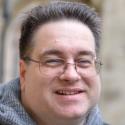2025 Academic Network
- Image
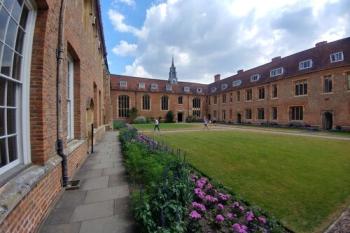
As Christian academics, we often experience isolation because of our own introverted and reclusive personalities. At the same time, because of the far-reaching influence of the classroom and higher education in shaping leaders and the next generation, every Christian scholar possesses an outsized potential for multi-generational impact. Our calling is to bring glory to Christ in the academic setting where we serve. This is why, as followers of Christ in the academy, we must be intentional about connecting with other like-minded colleagues.
The primary purpose of the ELF Academic Network is to gather together Christian scholars throughout Europe for equipping, uniting, resourcing, prayer, and accountability. At the 2025 Network, you will be blessed by outstanding presenters. Each one is a recognised scholar who, in their own academic work, is living and modelling what they teach. You will have opportunities to ask questions, discuss issues with your colleagues, and reflect on how these principles should change the way you think, live, and teach. Prior preparation will be set for all applicants.
What Network Participants Are Saying
- "As a medical doctor, an assistant professor, a PhD student, and a researcher, a main part of my ministry is to be a witness for Christ in academia. Words cannot fully convey what the ELF and its Academic Network have meant to me. I am now a lot better equipped to serve both Christians and non-Christians. I cannot fully imagine how the consequences of this will ripple outward for the glory of God."
- Hristian Staykov, Medical Doctor and Assistant Professor of Pharmacology, Bulgaria - "At the Forum, I had the chance to hear about principles of ministry in the modern world, meet new friends, and take a break from the war currently happening in Ukraine. This Forum was a source of inspiration and motivation for me and my ministry. I will use the resources and experiences to share the Gospel and bring more people to Jesus!" - Ruslan Khmyz, Seminary President, Ukraine
- "Being at the Forum is very encouraging to me because I have the opportunity to get to know leaders from other organisations who share the same burdens and concerns I do. I am learning new ways to negotiate my faith while serving my Bible school, the church, and the community of faith I belong to back home."
- Marius Ban, Lecturer, Romania
Applicants should be teaching or leading in a university, seminary, or other post-secondary educational institution or graduate students who hope to serve Christ in the academy. This Network will help academicians from a wide spectrum of disciplines to think about their discipline from a Christian worldview, attain excellence in teaching and research, share Christ with others, and maintain spiritual fervor.
Network Leadership
Network Speakers
Per Ewert is the director of The Clapham Institute, Sweden’s leading Christian think tank and research institute. His PhD describes the political process which shaped Sweden into the world's arguably most secular-individualistic nation. Per is the author of several books on the Bible,… Read more
Alexander Fink is Director of the Institute for Faith and Science (Institut für Glaube und Wissenschaft) in Marburg, Germany (www.iguw.de). He studied physics at Bayreuth and St. Andrews (UK) universities and received his PhD at the Institute for Biophysics at… Read more
Dirk Jongkind is the Academic Vice Principal of Tyndale House, Cambridge, and an Affiliated Lecturer at Cambridge University. His main scholarly interest is the text and language of the Greek New Testament. He is also the editor of the Tyndale House Greek New Testament… Read more
David McIlroy is a practising barrister based in London in the UK. He serves on the editorial board of Law & Justice, teaches the Mission of Justice and the Theology of Law course at Spurgeon’s College, and is a Visiting Professor at the University of Notre Dame (USA) in England. He is… Read more
Jerry Root is a Professor of Evangelism and Leadership at Wheaton College and serves as the Director of the Evangelism Initiative. Jerry is a graduate of Whittier College and Talbot Graduate School of Theology at Biola University; he received his… Read more
David Sandifer was born and raised in France, of American parents. He holds a Ph.D. in history, from the University of Cambridge (2014). He spent 20 years in pastoral ministry in the U.S. and Australia, and also worked for a Christian public advocacy organisation in Australia, where he co-… Read more
Christina Stier is a neuroscientist passionate about brain imaging, mental and neurological disorders, lifespan research, and interindividual variability. She is currently a postdoctoral researcher at the University of Münster, Germany, in a city with a lot of bicycle traffic. In 2022, she… Read more
Anna Fiona Weiss has always been fascinated by language and therefore studied German and Latin for teaching at the University of Marburg. She then decided to stay in academia and wrote a doctoral thesis in the field of neurolinguistics. In her dissertation, she developed a cognitive model for… Read more
Peter S. Williams (www.peterswilliams.com) studied philosophy at Cardiff University (BA), Sheffield University (MA) and the University of East Anglia in Norwich (MPhil), and obtained a masters level Postgraduate Certificate in Higher Educational… Read more
Network Programme
Sunday, 18 May
Academia has the capacity to impact society at every level, and so Christians serving in academia have a leveraged opportunity to bear witness to Christ. However, the academic calling also poses unique dangers to Christian faithfulness. We should not be shocked, then, when we see Christians either abandon or water down their faith as they progress in their academic careers. This talk will explore the explanation which Scripture gives for the perils of academia, and, therein, the antidote to them.
Most of the underlying values and principles of scholarly research are inherently neutral or even highly honourable. However, just like everything else, without God, these good traits can, and have, become dysfunctional. In this interactive session, we will take a critical yet hopeful look at spiritual challenges and opportunities in our individual and collective pursuits of knowledge. We will share experiences and insights on how Christian scholars can operate with God, not apart from Him, and discuss how academic work can be redeemed for Kingdom purposes.
Monday, 19 May
C.S. Lewis began his academic career at Oxford University as an atheist. He was attracted to faith in Christ through the writings of many such as George MacDonald, G.K. Chesterton, George Herbert, John Donne, Phillip Sidney, Edmund Spenser, Shakespeare, Samuel Johnson, and John Milton. He noticed that these writers were Christian and that they wrote of the Roughness and Density of Life. Lewis was attracted to their honest portrayal of life as we seem to really live it day to day, with all of its complexities. How can Christian academics draw inspiration from Lewis’s observations at this point in order to write and lecture in a way that is unpretentious and authentic?
We live in an age of uninformed scepticism about Jesus. This talk will show how the physical discoveries of archaeology undermine common misconceptions about: the existence of Jesus; the reliability of the Gospels; the historical credentials of the crucifixion, burial, and empty tomb of Jesus; and the existence of people who believed Jesus was God long before the 4th-century church council of Nicaea.
Tuesday, 20 May
Many PhD students have a passion for academic research and teaching, and they would love to stay in academia, possibly becoming professors. Too often, however, they realise how many hindrances and unknown criteria appear on the way and give up. In this session, we will interview different committed Christian academics who are in various stages of their careers facing a vast array of questions, opportunities, and challenges. Through this, we will learn how a Christian can prepare well for an academic career.
Critical Race Theory is dividing society and is increasingly leading to changes in worldview and language across Western Europe. How should we understand this enormous cultural shift? A biblical response requires close attention to what the Bible says about racism and injustice, about personal and corporate responsibility, and about what it means to love our enemies. This session will seek to explore what the Great Commission and the Great Commandments tell us about how Christians should think about our own sins, those of our nation and tribe, and those of others.
Wednesday, 21 May
The doctoral years are challenging and exhilarating. This stage also raises a particular set of spiritual dangers. These dangers never fully leave the Christian scholar, but at first glance they seem to pale in comparison to the “more serious work” involved in cultivating the life of the mind and aiming for outstanding results. Why should we take our character seriously if we are evaluated on the basis of competent scholarship? Should good work-related goals serve as ultimate aims in our callings? What do we lose if we place too much emphasis on obtaining knowledge over loving people? By dismissing, overlooking, neglecting, or failing to attend to our own spiritual formation and life with Jesus, we miss the whole point. This session will address how to approach the academic life as part of the greatest offer you will ever have: life with God.
Scripture provides us with the most immediate access to the mind of God available to us. As such, the personal reading and meditation of the Word of the one who is the Creator and Sustainer of everything falls into a different category than the words and ideas found in other abstracting disciplines such as theology, biblical exegesis, and philosophy. In this session, we will think about our exposure to God's Word which does not come to us through theological or philosophical categories, but nevertheless has a deep formative influence on how we approach our discipline.


